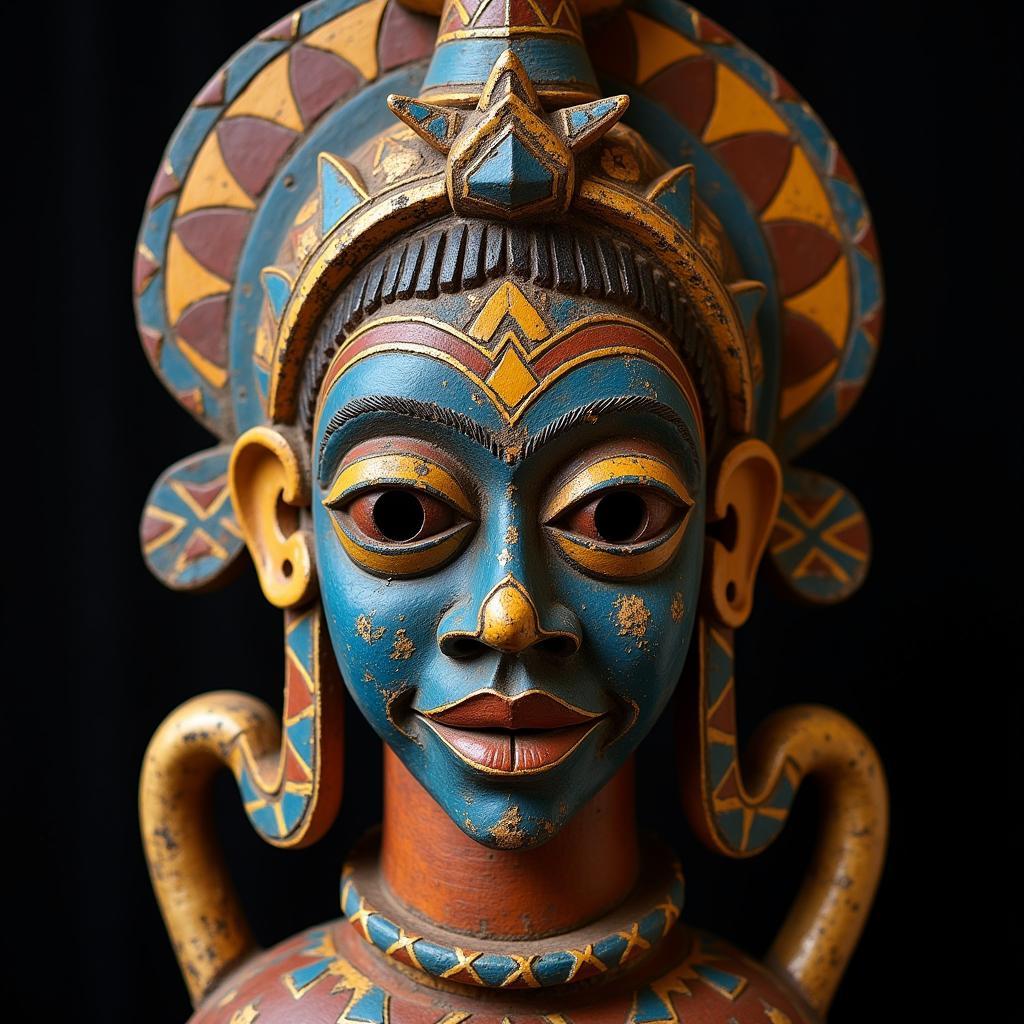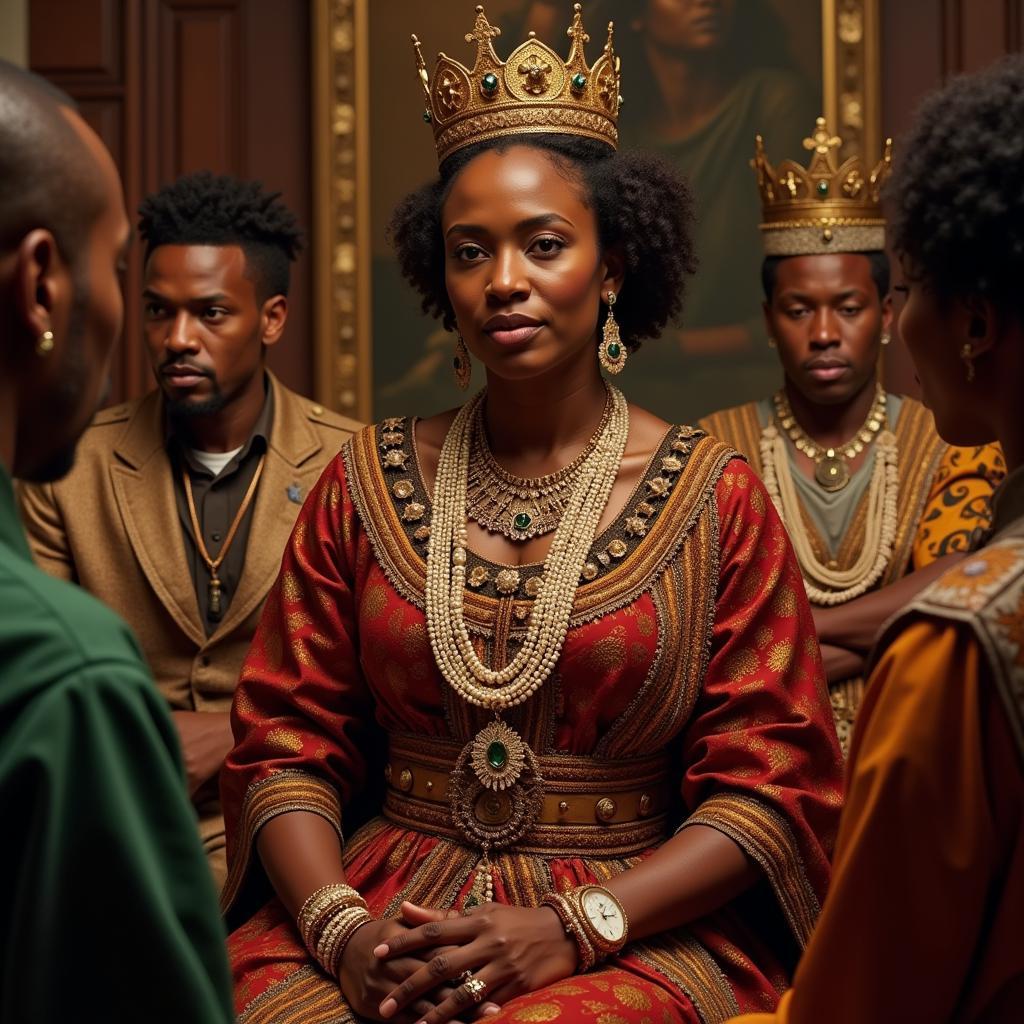Unveiling the Beauty and Controversy of African Elephant Hair Jewelry
African Elephant Hair Jewelry has a rich and complex history, intertwined with both beauty and controversy. For centuries, elephant hair has been incorporated into traditional adornments across various African cultures, often symbolizing strength, wisdom, and connection to the natural world. However, the ethical implications of using such materials have sparked significant debate, raising questions about sustainability and animal welfare. This article explores the origins, cultural significance, and ethical considerations surrounding African elephant hair jewelry.
Elephant hair jewelry has been a part of African culture for generations. Its symbolism varies among different tribes but it frequently represents courage, power, and good fortune. The use of this material has also been associated with traditional medicine and spiritual practices in some communities. You can find some amazing African heritage symbols online.
The History and Cultural Significance of Elephant Hair Jewelry
Historically, elephant hair wasn’t always directly taken from live elephants. Often, it was collected from naturally shed hairs found in the bush. This practice ensured minimal harm to the animals and emphasized a respectful relationship with nature. These collected hairs were then meticulously crafted into bracelets, necklaces, earrings, and other decorative items. In some cultures, possessing elephant hair jewelry signified a high social standing or marked achievements within the community.
The significance of elephant hair jewelry extended beyond mere adornment. It often held spiritual and medicinal value, believed to offer protection, ward off evil spirits, and even cure illnesses. For example, some tribes believed that wearing a bracelet woven from elephant hair could enhance fertility or bring good luck during hunting expeditions. These beliefs underscore the deep reverence for elephants in many African cultures, where these magnificent creatures are seen as symbols of wisdom and power.
Ethical Concerns and Sustainable Alternatives
The demand for elephant hair jewelry unfortunately contributed to the rise of poaching and illegal wildlife trade. As the desire for these items grew, so did the incentive to exploit elephants for their hair, leading to devastating consequences for elephant populations. Consequently, the ethical implications of wearing elephant hair jewelry have come under intense scrutiny. Many conservation organizations now strongly discourage the purchase and use of elephant hair products to protect these endangered animals.
Today, there are numerous sustainable and ethical alternatives to elephant hair jewelry. Artisans are creating beautiful pieces using recycled materials, plant-based fibers, and ethically sourced stones. These alternatives not only reduce the demand for elephant hair but also offer opportunities to support local communities and promote responsible craftsmanship. You can find many wonderful African elephant gifts that celebrate these magnificent creatures without harming them.
Is Elephant Hair Jewelry Illegal?
The legality of elephant hair jewelry varies depending on the specific laws of each country. In many regions, trade in elephant products, including hair, is strictly prohibited or heavily regulated to combat poaching and illegal wildlife trade. It is crucial to research and understand the regulations in your area before purchasing or importing any items made from elephant hair.
What can I do to help protect elephants?
Supporting reputable conservation organizations that work to protect elephants and their habitats is a crucial step. Raising awareness about the ethical concerns surrounding elephant products can also make a difference. Check out some inspirational African ladies wall stickers.
Dr. Anika Nkosi, a renowned wildlife conservationist, emphasizes, “Choosing sustainable and ethical alternatives is essential for protecting elephants. By supporting responsible artisans and businesses, we can contribute to a future where these magnificent creatures can thrive.”
Identifying Authentic Elephant Hair Jewelry
Identifying authentic elephant hair jewelry can be challenging. Genuine elephant hair has a unique texture and appearance, often described as coarse and wiry. However, it is easily replicated using synthetic materials. Therefore, it is essential to purchase from reputable sources that can provide documentation verifying the ethical sourcing of the materials.
Professor Jabari Olufemi, an expert in African cultural artifacts, cautions, “The illegal wildlife trade often involves counterfeit products. Careful examination and verification of authenticity are crucial to avoid unintentionally supporting harmful practices.”
Conclusion
African elephant hair jewelry carries a complex legacy. While it holds cultural significance for certain communities, the ethical considerations surrounding its use cannot be ignored. Choosing sustainable alternatives allows us to appreciate the beauty and symbolism associated with elephant hair without contributing to the endangerment of these majestic animals. By supporting ethical practices, we can help ensure the survival of elephants for generations to come. Remember to explore other aspects of African culture like the African comb symbol. You can also explore African Instagram for more cultural insights.
FAQ
- What does elephant hair symbolize in African culture? Elephant hair is often associated with strength, wisdom, and connection to nature.
- Is it legal to buy elephant hair jewelry? The legality varies depending on local regulations. It is crucial to research and understand the laws in your area.
- What are some ethical alternatives to elephant hair jewelry? Sustainable alternatives include jewelry made from recycled materials, plant-based fibers, and ethically sourced stones.
- How can I identify authentic elephant hair jewelry? Authentic elephant hair has a distinct coarse and wiry texture. However, verification from reputable sources is crucial.
- Why is it important to avoid buying elephant hair jewelry? Purchasing elephant hair jewelry can contribute to poaching and the illegal wildlife trade, endangering elephant populations.
- What can I do to support elephant conservation? Support reputable conservation organizations and raise awareness about the ethical concerns related to elephant products.
- Where can I find ethically sourced African crafts? Many online platforms and fair trade organizations specialize in selling ethically sourced African crafts, supporting local artisans and sustainable practices.
Need assistance? Contact us 24/7: Phone: +255768904061, Email: [email protected] or visit us at Mbarali DC Mawindi, Kangaga, Tanzania.


